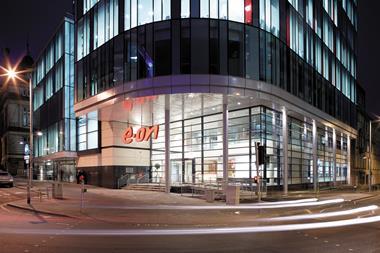UK - Tesco has revealed its pension deficit increased to £1.1bn (€1.2bn) by the end of February 2009, so the firm has pledged £500m of property to the scheme as contingent assets in a bid to improve its financial security.
Figures published in the retailer's preliminary results for 2008/09 showed the last triennial valuation for 31 March 2008 highlighted a "small deficit" of £275m, leading to an increase in both member and company contributions of an average of 0.7% of salary.
However, an updated valuation to the end of February 2009, using the IAS19 methodology of calculating liabilities and assets against the yield from high-quality corporate bonds, confirmed the pension deficit had increased to £1.1bn on a post-tax basis, up from £600m in February 2007.
Figures from the preliminary results also showed the deficit in the DB scheme, on a pre-tax basis, had increased from £838m to £1.49bn between February 2008 and 2009, although the report noted the mortality assumptions for the scheme had been strengthened to incorporate medium cohort improvements with a minimum improvement of 1% per year.
Tesco said the deficit increase "has been driven mainly by falls in capital markets and other asset classes, although the deficit is similar to the level reported at our interim results".
In addition to higher contribution rates, the company confirmed it has also granted the trustees of the defined benefit (DB) scheme £500m of contingent assets, in the form of property, "to further improve the security of the scheme for members".
Tesco added the DB scheme is "an important part of our competitive benefits package, which helps Tesco recruit and retain the best people".
Elsewhere, Lockheed Martin, the defence systems manufacturer, admitted it had to make a pension adjustment of $114m (€86m), following falls in asset values and investment income which had reduced net earnings for the company by $74m, or $0.19 a share.
First quarter figures from the company showed net earnings were $666m compared to $730m in 2007, when the pension adjustment generated an income of $32m leading to a $21m increase in net earnings.
Lockheed Martin revealed the negative pension adjustment was a result of the "negative actual return on plan assets in 2008 and a lower discount rate at 31 December 2008" as it switched to a discount rate of 6.125% from 7.5% following "significant declines in interest rates" in the last weeks of December.
In the 2008 fourth quarter results published in January, Lockheed Martin suggested the increase in projected FAS pension expense also related to the fact that actual returns on plan assets were expected to be -28% rather than -25%, while $109m had been allocated to pre-fund its DB pension plan trust.
If you have any comments you would like to add to this or any other story, contact Nyree Stewart on + 44 (0)20 7261 4618 or email nyree.stewart@ipe.com












